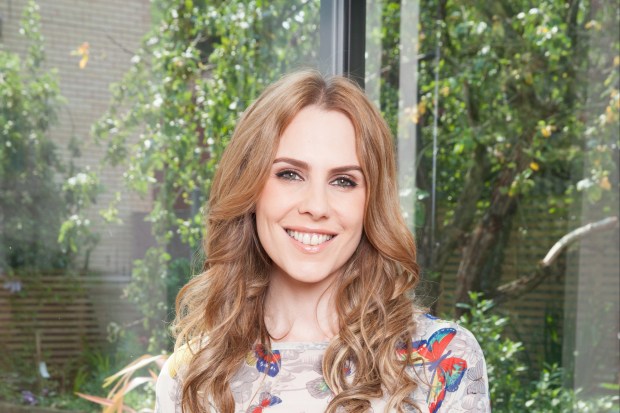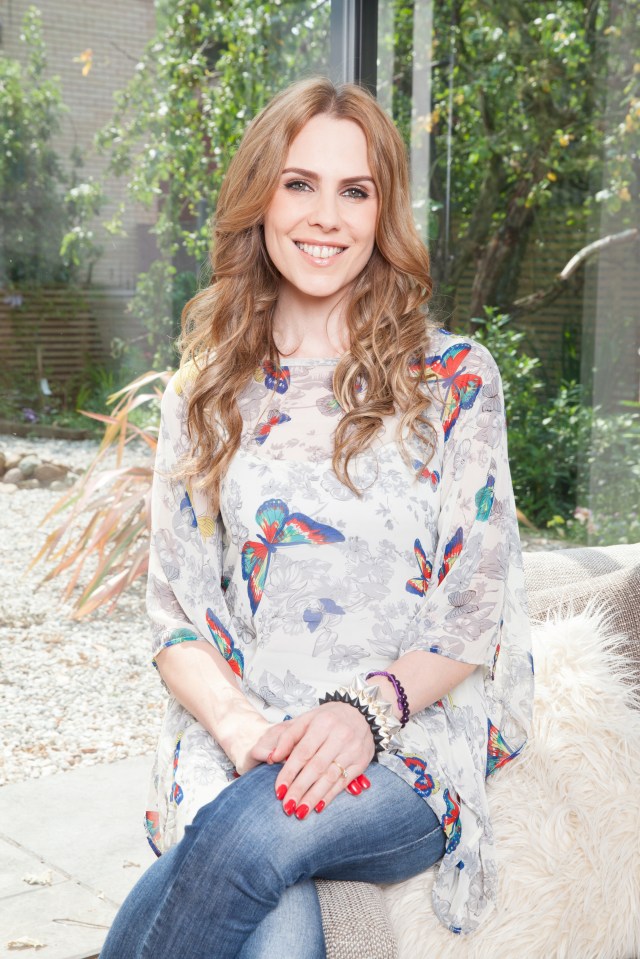TODDLERS are like little sponges, soaking up everything around them to learn.
They are naturally curious and eager to explore their world, and one of the main ways they learn is through imitation.
These days, a significant source of learning for little ones is television programmes.
However, studies have found that watching certain shows, especially from an early age, can negatively impact a child’s development.
Japanese researchers discovered that kids who spent more time in front of the TV were more likely to have delayed speech and difficulty moving around at ages two and three.
They tracked 57,980 children to see how screen time affected their ability to walk, talk, solve problems, and develop social skills.
So, while TV can be a source of entertainment and education, it’s important to be mindful of how much and what kind of content toddlers are exposed to.
Surprisingly, there are many popular shows that experts now warn parents to avoid.
Here, psychologist and parenting expert Emma Kenny shares with YASMIN HARISHA her top shows that she advises parents to reconsider before letting their children watch them.
Pingu
The beloved children’s TV show “Pingu” is set to make a comeback 34 years after its original debut.
First aired in 1990, Pingu delighted audiences with its charming episodes over the next decade and was revived for two additional series between 2003 and 2006.
The decision to bring back the iconic character follows the recent viral success of Pingu clips on social media, sparking renewed interest and excitement among fans.
However, Emma is urging parents to be vigilant when it comes to getting their kids hooked on it.
Watching it together and discussing his actions can help children understand better behaviour.
Emma Kenny
Emma says: “Pingu, while beloved, has some behaviours that might send the wrong message to young viewers.
“Pingu’s frequent tantrums and mischievous pranks are often shown without consequences, which can suggest to kids that acting out is acceptable.
“The gibberish language is fun but lacks clear communication, which might confuse young children in language development stages.
“Also, Pingu’s teasing of his sister and lack of adult guidance in the show could lead to misunderstandings about sibling dynamics and boundaries.
“Watching it together and discussing his actions can help children understand better behaviour.”
Peppa Pig
It’s one of the nation’s favourite shows and has captured the hearts of children and parents since 2004.
The show features a colourful cast of characters, including Peppa Pig, her younger brother George, Mummy Pig, and Daddy Pig. Peppa’s friends, such as Suzy Sheep, Danny Dog, and Rebecca Rabbit, also play significant roles in the series.
However, despite its widespread popularity, Peppa Pig has faced some criticisms.
Some parents have pointed out that certain behaviours, such as Peppa’s occasional bossiness or the family’s frequent use of the word “silly,” might not always set the best example for young viewers.
Children may absorb these patterns, mimicking them in real life
Emma Kenny
Emma says: “On the surface, Peppa Pig looks like an innocuous show about a lovable pig and her family.
“However, Peppa’s constant undermining of her dad and her generally rude, often bratty, behaviour send problematic messages about family dynamics.
“Children may absorb these patterns, mimicking them in real life and becoming more likely to exhibit disrespect or entitlement towards parents and siblings.”
Fireman Sam
As a cherished British animated children’s TV series, Fireman Sam has been keeping kids entertained since 1987.
The show features Fireman Sam as the central figure, known for his bravery in emergencies and dedication.
Other key characters include Station Officer Steele, firefighter Penny Morris, and the mischievous Norman Price, among others.
Emma says: “While the bravery and community spirit of Fireman Sam is commendable, it’s impossible to overlook the stereotypes.
Children may start to believe they are only ‘good’ if they do exactly what’s asked of them
Emma Kenny
“Men are typically seen as brave heroes, while women in the show often take a backseat or fall into damsel roles.
“Kids may come away with the perception that only boys should aspire to these traditionally heroic roles, potentially stifling ambitions, especially for young girls.”
Hey Duggee
This show centres around Duggee, a lovable dog who leads a scout-like club called the Squirrel Club.
Each episode sees Duggee and the Squirrels, a group of enthusiastic animal children, embarking on fun and educational adventures.
However, Emma warns against watching the behaviour.
She says: “This show seems like a safe, friendly programme. Yet the overwhelming emphasis on conformity and earning badges for ‘good behaviour’ promotes a very conditional sense of worth.
The constant stimulation doesn’t give kids enough time to process the content
Emma Kenny
“Children may start to believe they are only ‘good’ if they do exactly what’s asked of them, leading to an overly performance-based identity and a fear of making mistakes.
“Being a kid involves making mistakes and lots of them, and these should be celebrated in equal measure as this is how we all learn.”
CoComelon
It’s a highly popular animated children’s series and one of the first to have taken the world by storm, as kids can stream it on Netflix and YouTube.
The main characters of CoComelon are the members of the CoComelon family, including baby JJ, his older siblings YoYo and TomTom, and their parents.
However, Emma is warning against its stimulation techniques.
We need more unique thinkers in this world, as opposed to a homogenous group of followers
Emma Kenny
She says: “While its songs and animations are a hit, CoComelon has come under scrutiny for its fast-paced, repetitive visuals that can overstimulate children.
“The constant stimulation doesn’t give kids enough time to process the content, potentially leading to attention issues as they grow accustomed to non-stop entertainment that’s difficult to replicate in real-world settings.”
Paw Patrol
This Canadian series follows a group of rescue dogs known as the Paw Patrol, who work together to protect the community of Adventure Bay.
Each dog has a specific set of skills and equipment that they use to solve problems and save the day.
Emma says: “Everyone loves a show with cute animals, but Paw Patrol subtly reinforces authoritarian messaging.
“Each character has a defined role, but it’s Ryder who makes all the decisions, while the others obediently follow.
Critics argue that this approach risks exposing young children to concepts beyond their developmental stage
Emma Kenny
“Children may internalise rigid role expectations and the idea that following orders without questioning is inherently ‘good,’ potentially fostering a lack of critical thinking.
“We need more unique thinkers in this world, as opposed to a homogenous group of followers.”
Miss Rachel
Miss Rachel, also known as Rachel Griffin-Accurso, 41, is an acclaimed children’s educator, singer, and content creator.
Her videos on her YouTube channel ‘Songs for Littles’ have become highly popular among young children and a ‘go-to’ for parents looking to keep their children entertained during their early developmental years.
Emma says: “Ms. Rachel, through her popular ‘Songs for Littles’ series, aims to promote early language development and social skills.
“However, some parents find her content overly politicised, as it introduces themes like diversity, inclusivity, and non-traditional family structures in a way that may feel more ideological than educational.
With millions of young viewers, Ryan’s World has faced criticism for its heavy commercialism
Emma Kenny
“While her efforts to make content accessible and inclusive are appreciated by many, critics argue that this approach risks exposing young children to concepts beyond their developmental stage, potentially confusing them about complex social issues before they have a foundation to understand them.”
Ryan’s World
Ryan’s World, which features Ryan Kaji, 12, along with his family, has captivated millions of young viewers around the globe.
But one of the most popular types of content on Ryan’s World is toy reviews and unboxings.
Ryan’s enthusiastic and genuine reactions to new toys have made these videos a favourite among young viewers and have influenced toy trends and sales.
It can lead to kids to believing happiness is tied to owning the latest toys and gadgets
Emma Kenny
But this has also faced heavy criticism.
Emma says: “With millions of young viewers, Ryan’s World has faced criticism for its heavy commercialism.
“The channel’s format often blurs the line between content and advertising, making it difficult for young children to discern entertainment from product promotion.
“This can foster materialism from an early age, leading kids to believe happiness is tied to owning the latest toys and gadgets.”
What do I do instead?

By Emma Kenny, psychologist and parenting expert
Set Boundaries
Decide on daily limits for watching shows or YouTube. Aim to balance it with non-screen activities.
Use Parental Controls
Enable YouTube Kids or platform-specific parental controls to filter content and set usage limits.
Watch Together
Join them to understand what they enjoy and discuss anything inappropriate or confusing.
Offer Alternatives
If they’re already hooked, introduce new hobbies or family activities to help break the habit gently.
Stay Calm and Consistent
Be patient – gradually reducing screen time and offering engaging alternatives works best for long-term change.

























